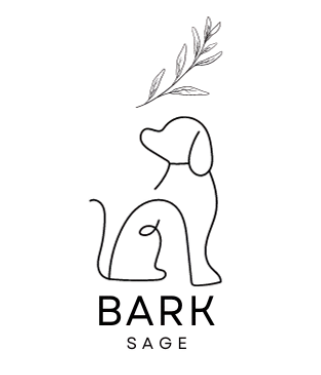How Often Do Goldendoodles Shed: 10 Fascinating Ways to Manage Shedding

Do Goldendoodles Shed? One of the key reasons why Goldendoodles have become a popular choice among dog lovers is their hypoallergenic coat, which translates to minimal shedding.
Unlike some traditional breeds that leave a trail of fur wherever they go, Golden-doodles have hair rather than fur, making them an excellent choice for those with allergies or a preference for a cleaner home environment.
How to Manage Goldendoodle Shedding
While Goldendoodles shedding may be minimal, a little proactive care can go a long way in keeping their fluffy coats in check. Whether you’ve just welcomed a Goldendoodle into your home or are considering it, here are some tips to help you manage their shedding effectively.
Regular Brushing:
Establish a grooming routine with your Goldendoodle by brushing their coat regularly. This not only removes loose hair but also prevents matting and tangling. Aim for at least a few times a week, adjusting based on your dog’s individual needs and coat type.
Professional Grooming:
Schedule regular visits to a professional groomer to maintain your Goldendoodle’s coat in optimal condition. Professional grooming can include trimming, bathing, and additional care to minimize shedding and keep your furry friend looking and feeling great.
Healthy Diet:
A balanced and nutritious diet can contribute to the overall health of your Goldendoodle, affecting their skin and coat condition. Consult your veterinarian for recommendations on the best food choices that promote a healthy, shiny coat and reduce shedding.
Hydration Matters:
Just like humans, dogs need proper hydration for healthy skin and coat. Ensure your Goldendoodle has access to fresh water at all times, especially during warmer months when dehydration can impact their skin condition.
Environment Control:
Maintain a clean and comfortable living space for your Goldendoodle. Regularly vacuuming and dusting can help control loose hair around the house. Consider using furniture covers and bedding that are easy to clean, creating a more pet-friendly environment.
Supplements for Skin and Coat:
Consult with your veterinarian about supplements that can promote skin and coat health in your Goldendoodle. Omega-3 fatty acids, for example, are known to support a shiny, healthy coat and can help reduce shedding.
Remember that each Goldendoodle is unique, and the shedding pattern can vary. By incorporating these tips into your routine, you can enjoy the best of both worlds—a loving, low-shedding companion and a home that stays fur-free. Managing Goldendoodle shedding is not just about reducing loose hair but also about ensuring your furry friend’s overall well-being.

Do Goldendoodles Shed Much
Welcoming a Goldendoodle into your home means inviting boundless joy and affection, but it doesn’t have to mean sacrificing a tidy living space. Here are some practical tips to help you maintain a clean home while enjoying the company of your fluffy Goldendoodle.
Regular Grooming Routine:
Establish a consistent grooming routine to keep your Goldendoodle’s coat in check. Regular brushing not only minimizes shedding but also prevents mats and tangles, reducing the amount of loose hair around the house. Check out our blog post: Goldendoodle Haircuts: Find Out How to Give 5 Trendy Hairstyles to find out more about grooming techniques.
Pet-Friendly Furniture:
Opt for pet-friendly furniture and accessories that are easy to clean. Choose upholstery that doesn’t trap hair and consider using washable, removable covers for sofas and chairs. This makes it simpler to keep your furniture fur-free.
Invest in Quality Cleaning Tools:
Arm yourself with the right cleaning tools, such as a high-quality vacuum cleaner equipped with pet hair attachments. These tools are designed to efficiently pick up pet hair from carpets, rugs, and furniture, helping you maintain a hair-free environment.
Designate Pet Areas:
Establish specific areas for your Goldendoodle, such as a cozy bed or a designated corner with their toys. This helps contain shedding to specific zones, making cleanup more manageable.
Regular Floor Maintenance:
Stay on top of floor maintenance by sweeping or vacuuming regularly. Hardwood or laminate floors are often easier to clean than carpets, but whatever your flooring type, a consistent cleaning schedule will keep loose hair at bay.
Washable Pet Bedding:
Choose washable bedding for your Goldendoodle’s sleeping area. This not only ensures a clean and comfortable space for your pet but also simplifies the process of keeping their belongings fresh.
Stain-Resistant Fabrics:
Consider using stain-resistant fabrics for curtains, carpets, and other home textiles. These fabrics are easier to clean and can withstand the occasional muddy paw prints or spills.
Outdoor Cleanup Routine:
Develop a routine for outdoor cleanup, especially after walks or playtime. Wiping your Goldendoodle’s paws and giving them a quick brush before entering the house can significantly reduce the amount of dirt and hair they bring inside.
Air Purifiers:
Invest in a good quality air purifier to help capture airborne allergens and minimize pet odors. This is particularly beneficial if you or your family members have allergies.
Consistent Training:
Training your Goldendoodle to follow basic commands, such as sitting before entering the house, can help minimize mess and make cleanup more efficient.
With a little planning and consistent effort, it’s absolutely possible to enjoy the company of your Goldendoodle without compromising the cleanliness of your home. These tips will not only keep your living space spotless but also create a comfortable and welcoming environment for both you and your furry friend.
To learn more about managing goldendoodle shedding, check out this blog post: Are Goldendoodles Hypoallergenic?: Discover 7 Helpful Tips For Allergies
How Often Do Goldendoodles Shed
The shedding patterns of Goldendoodles, like many other dogs, can be influenced by seasonal changes. However, it’s important to note that individual variations exist and not all Goldendoodles will follow the same pattern. In general, Goldendoodles tend to shed moderately or minimally throughout the year due to their hypoallergenic coat inherited from the Poodle lineage.
During the winter months
some Goldendoodles may experience a slightly increased shedding as they naturally adapt to the colder temperatures. This shedding may be more noticeable as they prepare their coat for insulation against the cold weather. The thicker undercoat, which provides warmth during winter, might be shed more prominently as the seasons transition.
During the summer months
Goldendoodles might shed to a lesser extent as they adapt to warmer temperatures. The shedding during this season can be attributed to the removal of the thicker winter coat, allowing for better heat dissipation and comfort in the heat.
It’s essential to consider that factors such as indoor heating during winter and air conditioning during summer can influence a Goldendoodle’s shedding patterns. Indoor environments with controlled temperatures may mitigate the impact of seasonal changes on shedding.
Regardless of the season, maintaining a consistent grooming routine is key to managing shedding in Goldendoodles. Regular brushing helps remove loose hair, prevents matting, and keeps the coat healthy. Professional grooming sessions, where the dog’s coat can be trimmed and properly cared for, are also beneficial in managing shedding. To find out different grooming styles for you golden doodles, check out our blog post on Goldendoodle Haircuts
While seasonal changes may have a mild effect on shedding in Goldendoodles, individual genetics and overall health play a more significant role. If you observe excessive shedding or drastic changes in your Goldendoodle’s coat, it’s advisable to consult with a veterinarian to rule out any underlying health concerns and ensure your furry companion remains happy and comfortable year-round.
Conclusion
In conclusion, the Goldendoodle’s fur is a fascinating aspect that embodies the delightful blend of its Golden Retriever and Poodle parentage. With a variety of textures, from soft curls to gentle waves, and an array of colors ranging from cream to black, each Goldendoodle is a unique and visually appealing companion. What sets their fur apart is not just its aesthetic diversity but also its hypoallergenic quality, making Goldendoodles an excellent choice for those seeking a furry friend without the hassle of excessive shedding.










